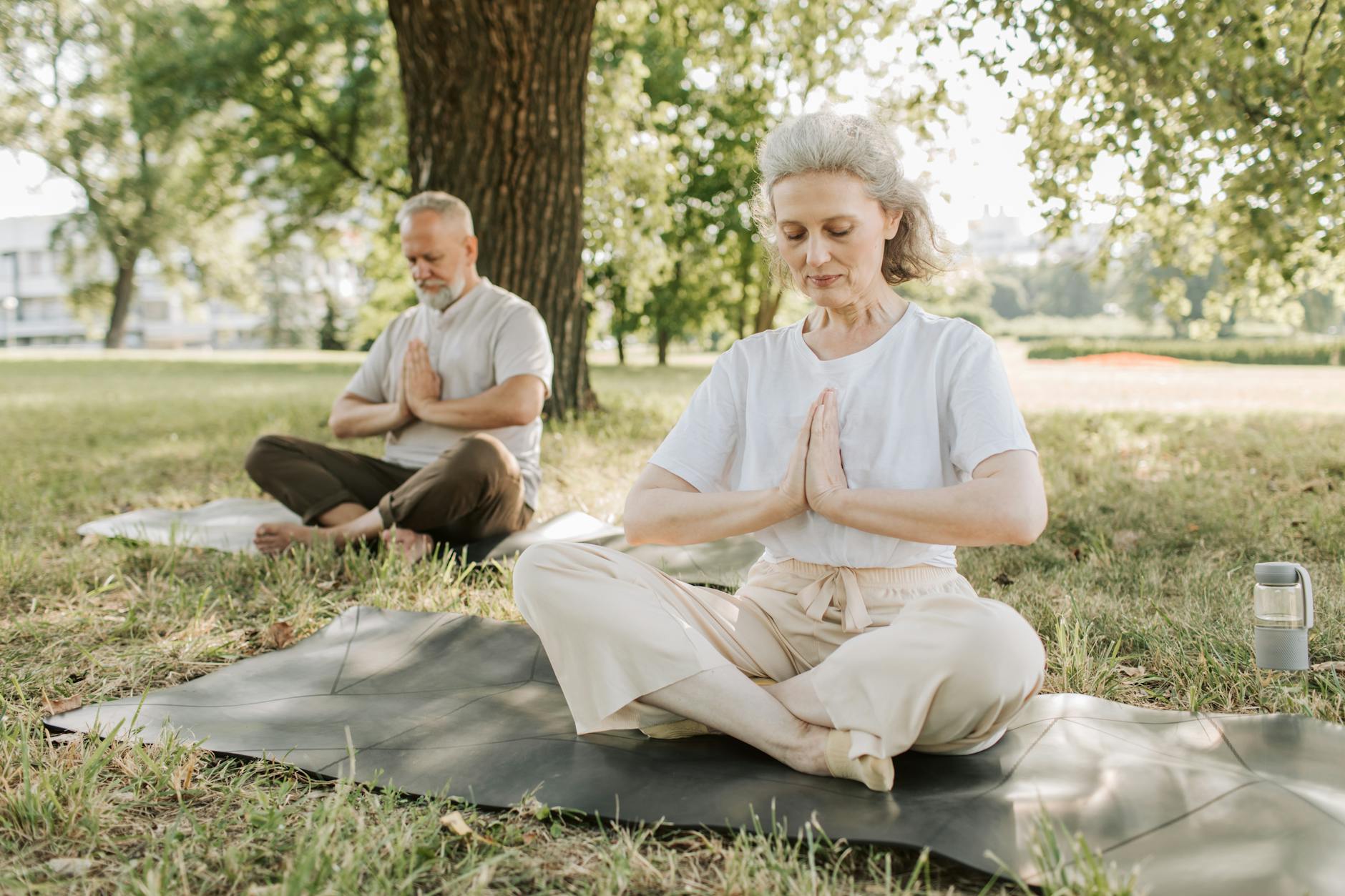Retirement isn’t just about slowing down—it’s about reconnecting with what truly matters. We’ve spent decades chasing deadlines, raising families, and building careers. Now, as the pace shifts, we have a unique opportunity to turn inward and nurture our emotional, cognitive, and physical well-being.
These practices offer a profound sense of purpose and clarity, guiding us through life’s later years with newfound serenity. In this article, we explore meaningful mindfulness and spiritual activities in retirement that can truly enrich your golden years.
Why Mindfulness and Spirituality Matter After Retirement
The transition from a busy working life to one of inner reflection can be both liberating and, at times, a bit disorienting. That’s where mindfulness and spirituality step in, offering a steady anchor.
The benefits are simply remarkable: think reduced stress, enhanced memory, better sleep, and improved emotional health.
There’s even compelling research suggesting that practices like meditation are linked with a lower risk of cognitive decline. It’s about nurturing your mind and spirit, just as you would your body.
Mindfulness Practices to Embrace in Daily Life
Bringing mindfulness into your daily routine doesn’t require hours of dedication. Small, consistent efforts can yield profound results.

Daily Meditation Sessions
Even just 5-10 minutes a day can make a world of difference. Simple guided routines are a fantastic starting point. I often recommend senior-friendly apps like Calm or Insight Timer, which offer a variety of meditations tailored for different needs.
Deep Breathing and Relaxation Exercises
This is such a simple yet powerful tool! Practice before meals or bedtime. Focusing on your breath can significantly lower blood pressure and regulate heart rate, bringing an immediate sense of calm.
Journaling Gratitude and Reflections
Every evening, I jot down three things I’m grateful for. It’s a wonderful practice that not only enhances memory but also uplifts your mood. It’s amazing how much good you find when you look for it.
Nature Walks with Awareness
Step outside and truly engage your senses. Whether it’s a local park or just your backyard, mindful walking allows you to connect with nature. Pay attention to the sights, sounds, and smells around you. It’s a walking meditation!
Also Read: How to Build a Legacy after 60 that Inspires Future Generations: More Than Just Memories
Spiritual Activities That Bring Inner Fulfillment
Spirituality isn’t limited to organized religion; it’s about connecting with something larger than yourself and finding meaning.

Attending Worship or Fellowship Groups
For many, this is a cornerstone of spiritual life. Whether it’s in-person or online, churches, temples, or spiritual circles offer a sense of community and shared meaning. If you haven’t explored these options, now might be the time.
Reading Sacred Texts or Inspirational Books
Carving out time for daily readings can be incredibly enriching. This could be from the Bible, the Bhagavad Gita, Buddhist texts, or even non-religious books that offer wisdom and perspective, like “The Book of Joy” or “Tuesdays with Morrie.”
Practicing Forgiveness and Letting Go
This can be a deeply healing practice. Through journaling or meditative reflection exercises, we can process old hurts and release burdens we might have carried for years. It’s about emotional freedom in our later years.
Volunteering as a Form of Spiritual Service
There’s immense spiritual growth that comes from acts of kindness and compassion. Giving back to your community—whether through local organizations or senior-volunteer platforms—is a powerful way to find purpose and connection.
Creating a Mindful and Spiritual Routine at Home
Establishing a dedicated routine can help these practices become second nature.
Consider a simple morning ritual: start with some deep breathing, enjoy a warm cup of tea, then spend some time reading or in prayer. You might also create a “sacred space” at home—a small altar, a quiet reading corner, or just a comfortable chair where you can reflect undisturbed. For those who like a plan, a printable routine planner can be incredibly helpful!
Also See: 5 Steps to Discover a New Passion in Your Golden Years
Stories from Seniors: How Mindfulness Changed My Retirement
Before meditation, I struggled with restless nights. Now, I sleep better and find I’m much more patient and connected with my grandchildren.
Betty, 72
Volunteering at the animal shelter has given me a renewed sense of purpose. Every wagging tail reminds me of the joy in simple service.
Robert, 68
Journaling my gratitude has shifted my entire perspective. Even on challenging days, I can find something to be thankful for.
Elena, 65
Getting Started: Small Steps, Big Changes
It can feel overwhelming to start something new, but remember, big changes come from small steps. Recommend beginning with just one new practice a week. Try meditating for five minutes, or simply focusing on your breath during your morning coffee. The most important thing to remember is that it’s never too late to grow spiritually or embrace a more present way of living.
Reaffirm the power of inner calm, gratitude, and faith in these golden years. These aren’t just activities; they are pathways to a richer, more fulfilling life.
So, tell me, which mindfulness or spiritual activity are you going to try this week? Share this with a friend who’s seeking more meaning in their retirement!
Frequently Asked Questions (FAQs)
It’s natural to have questions as you explore new pathways to well-being in your golden years. Here are some of the most frequently asked questions about mindfulness and spiritual activities in retirement, along with straightforward answers to help you on your journey to inner peace and purpose.
Q1: What are the main benefits of mindfulness for seniors?
A: Mindfulness for seniors offers a treasure trove of benefits, including reduced stress and anxiety, improved sleep quality, sharper cognitive function (like memory and focus), and enhanced emotional regulation. It helps you stay present and appreciate the richness of everyday moments, leading to a more fulfilling retirement.
Q2: Is meditation difficult for older adults to learn?
A: Not at all! Meditation for seniors can be surprisingly accessible. You don’t need to sit cross-legged for hours. Many effective practices start with just 5-10 minutes a day, focusing on your breath or using guided meditations. Apps like Calm or Insight Timer are excellent, senior-friendly tools to get you started comfortably, even from a chair or bed.
Q3: How can spiritual activities help me find purpose after retirement?
A: Spiritual activities in retirement provide a profound sense of meaning and connection beyond a career. Whether through volunteering, connecting with nature, engaging with a faith community, or practicing forgiveness, these activities foster compassion, gratitude, and a feeling of contributing to something larger than yourself. This pursuit of spiritual growth for retirees is key to a purposeful life.
Q4: Do I need to be religious to practice spirituality in retirement?
A: Absolutely not! Spirituality is a broad concept. While many find spiritual fulfillment through traditional religious practices, others discover it through non-religious avenues like mindful nature walks, artistic expression, deep reflection, or acts of kindness. The goal is to find what resonates with your personal values and brings you a sense of connection and peace. It’s all about exploring how to be present after retirement.
Q5: What if I have physical limitations that make certain activities challenging?
A: Many mindfulness and spiritual practices for seniors can be adapted! Gentle chair yoga, seated meditation, journaling, and listening to audiobooks or guided meditations are all wonderful options. The key is to find practices that honor your body’s capabilities. Remember, even a few minutes of mindful breathing can bring significant benefits.
Q6: How can I fit mindfulness and spiritual practices into my daily routine?
A: Start small! Begin with one practice, perhaps a 5-minute guided meditation in the morning or noting three things you’re grateful for before bed. Consistency is more important than duration. Gradually, you can build a mindful morning ritual or create a quiet, sacred space at home for reflection. Even simple acts like mindful eating can transform your day and promote mindful retirement.

